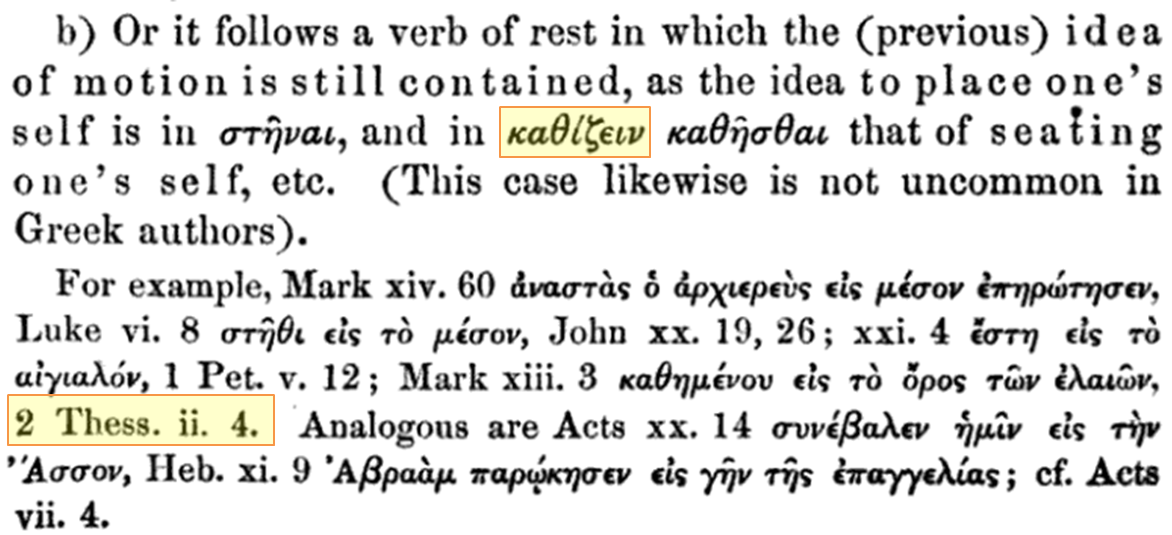2 Thessalonians 2:4 KJV 2 Who opposeth and exalteth himself above all that is called God, or that is worshipped; so that he as God sitteth in the temple of God, shewing himself that he is God..
.
2 Thess 2:4 ("Berean" Version) etc
He will oppose and exalt himself above every so-called god or object of worship. So he will seat himself in the temple of God, proclaiming himself to be God.
Why use 'sit' in one version, and in another 'seat', yet in the latter verb it points to cause to be 'sat,' whereas in the former its the plain act of sitting, if not allegorical as in what ''panels'' do? Even worse, the original throws in the aspect of "appointing""
